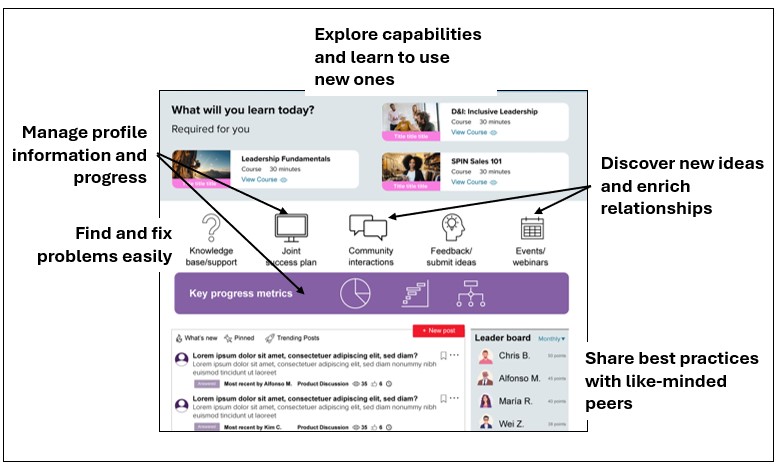The generational divide isn’t just about slang, side parts, or social media platforms. It’s in our wallets, too. While Baby Boomers championed structured, long-term savings plans rooted in stability, Gen Z is throwing many of those traditions out the window. To Boomers, “saving” meant socking money away in banks, sticking to budgets, and playing by the rules. To Gen Z? It means adapting to a world where those rules barely apply anymore.
Born into a digital age with rising inflation, volatile job markets, and economic uncertainty as their backdrop, Gen Z isn’t just rethinking old-school money moves. They’re dismantling them entirely. And their new wave of financial habits could either set them up for unexpected success or total disaster, depending on how the dust settles.
Let’s explore the saving money plans Boomers swore by and how Gen Z is wrecking them with wild precision.
1. The Emergency Fund? Gen Z Questions the Math
Boomers emphasized the need for a 3- to 6-month emergency fund, often sitting in a low-interest savings account “just in case.” It was viewed as a sacred financial cushion. But for many in Gen Z, this feels outdated, if not outright impossible.
With rent, tuition, and basic necessities costing more than ever, Gen Z often finds it unrealistic to save thousands in a non-yielding account. Instead, many prefer keeping smaller emergency stashes in high-yield online accounts or, controversially, investing portions of it in assets like crypto or ETFs to maximize growth potential.
They’re not ignoring emergencies; they’re just unwilling to let their cash stagnate. The new mindset is: “Why should I let inflation eat my savings alive while I wait for a rainy day?”
2. The Budget Binder Is Now an App (Or a TikTok Trend)
Boomers were all about the envelope method, spreadsheets, and rigid budgets that mapped out every dollar. Gen Z, raised on smartphones, doesn’t see money that way. Their approach to budgeting is more fluid, more reactive, and often dictated by real-time data or trending financial challenges on TikTok.
Instead of writing things down, they rely on budgeting apps like YNAB (You Need a Budget), Goodbudget, or even Instagram budgeting influencers. Spending is often tracked by vibes, goals, and community encouragement rather than strict numerical discipline.
This shift isn’t necessarily less effective. It’s just more intuitive and social. Gen Z blends financial planning with digital culture in a way Boomers never could.
3. Saving for Retirement at 22? Gen Z Says “Not So Fast”
Boomers were taught to start saving for retirement as soon as they could, and the earlier, the better. But Gen Z has inherited a far less stable financial reality. Many don’t even see retirement as a real possibility yet.
For some, contributing to a 401(k) or IRA isn’t even on the radar due to low-paying entry jobs, side hustles without benefits, or massive student debt. Others intentionally delay traditional retirement savings in favor of more aggressive wealth-building moves, like real estate, investing in themselves, or starting small businesses.
They’re not ignoring the future. They’re just choosing to bet on shorter-term autonomy and diversified income streams instead of long-haul slow burns.
4. Loyalty to a Single Employer? That’s Laughable
Boomers often built wealth by staying with one employer for decades, relying on steady promotions, pensions, and company-sponsored retirement plans. Gen Z is slashing that playbook with one swipe.
In a world of at-will employment and disappearing benefits, loyalty doesn’t pay. Gen Zers are much more likely to job-hop for better pay, benefits, or even just work-life balance. They negotiate salaries more openly, view employers with skepticism, and take their retirement savings into their own hands.
The traditional method of sticking it out and trusting your employer to “take care of you” is dead to this generation. Control is everything.

5. High-Interest Savings Accounts Are the New Boomer CD
Certificates of Deposit (CDs) were a favorite savings tool for Boomers: safe, predictable, and secure. But Gen Z doesn’t want to lock their money away for years with minimal return. Instead, they lean into high-yield online savings accounts or short-term Treasury options they can monitor and move in real-time.
Many are even learning how to ladder short-term investments for maximum liquidity while still beating inflation—something most Boomers didn’t do until much later in life. They want access to their funds, flexibility, and speed.
6. Frugality Is Rebranded as “Value-Based Spending”
Boomers often touted frugality as a virtue: clip coupons, drive the car until it dies, and never eat out. Gen Z doesn’t necessarily reject saving. They just reframe it. They practice something called “value-based spending,” where money flows freely toward what aligns with their personal values.
If buying oat-milk lattes brings daily joy and cuts down on mental stress, it stays. If a big vacation once a year fuels productivity, it’s worth budgeting for. Gen Z is still strategic but not willing to suffer for savings if they can avoid it. This shift isn’t laziness. It’s a reevaluation of what wealth is supposed to buy: freedom, not austerity.
7. Side Hustles Have Replaced Passive Saving
While Boomers saved passively and relied heavily on compounding interest over time, Gen Z actively chases income through side hustles, digital projects, and content creation. Passive saving isn’t cutting it, especially with wages lagging behind inflation.
Gen Z sees their time as their greatest asset. Whether it’s flipping thrifted items, selling digital art, managing microbrands, or monetizing a YouTube channel, side hustles are now essential parts of their financial toolkit, not backup plans. This hustle culture may be intense, but it’s rooted in a deep distrust of traditional paths to wealth.
8. Buying a House = Optional, Not Inevitable
For Boomers, homeownership was the cornerstone of adult financial life. You worked, bought a house, paid it off, and lived off its equity in retirement. But Gen Z is watching housing prices skyrocket and interest rates soar. Many aren’t even sure they want to own a home.
Instead, they prioritize mobility, digital nomadism, and flexible leases. Some are even exploring co-buying homes with friends or investing in REITs (real estate investment trusts) rather than traditional mortgages. To them, renting isn’t throwing money away. It’s buying flexibility in a system that’s failed to serve their generation.
9. Saving Is Now a Political Act
Perhaps the most subtle but powerful difference is this: Gen Z sees money choices as inherently political. They understand that systems impact savings: wage stagnation, healthcare costs, climate change, and student loans all shape financial outcomes.
Where Boomers often saw financial success as a purely individual effort, Gen Z blends activism with economics. They choose to bank with credit unions over big banks, support ethical brands, and invest in ESG (Environmental, Social, Governance) portfolios, even if returns are slightly lower.
A System Rewritten in Real Time
Boomers built a savings model based on a stable economy, long-term employment, and institutions that (mostly) delivered what they promised. Gen Z, raised amid recession, disruption, and distrust, isn’t buying that narrative. They’re crafting their own strategies—ones that prioritize speed, access, personalization, and even protest.
Are their methods risky? Sometimes. But they’re also realistic, given the financial world they’ve inherited. And while some Boomers may shake their heads, Gen Z’s radical revision might be exactly what the next economic era demands.
Do you think Gen Z is destroying outdated financial systems or building smarter ones for a new age? How has your saving strategy evolved?
Read More:
Why Gen Z Could Become the Richest—and Most Disruptive—Generation Yet
Crying Over the Housing Market: Why Millennial and Gen Z Buyers are Struggling
Riley is an Arizona native with over nine years of writing experience. From personal finance to travel to digital marketing to pop culture, she’s written about everything under the sun. When she’s not writing, she’s spending her time outside, reading, or cuddling with her two corgis.


























